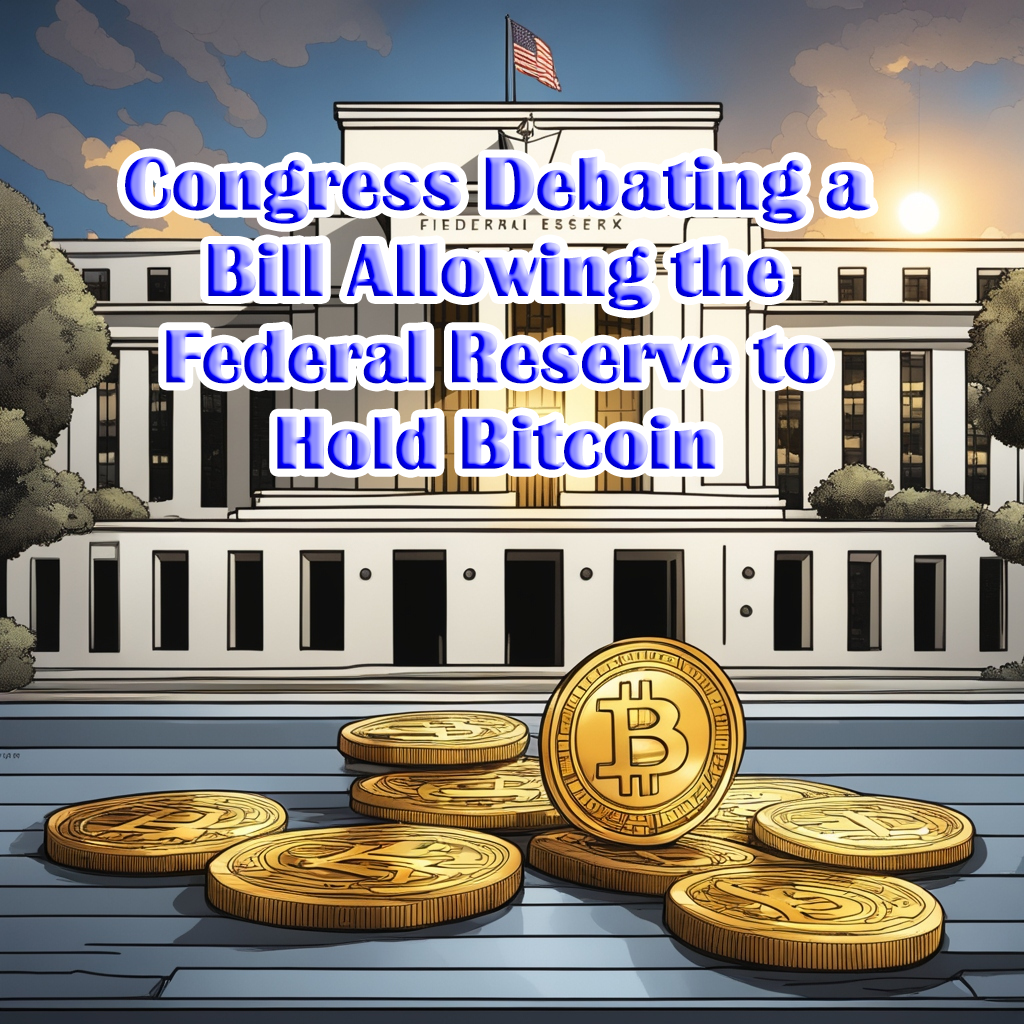
Economic Implications of Congress Debating a Bill Allowing the Federal Reserve to Hold Bitcoin
The U.S. Congress is currently debating a proposed bill that could have significant implications for the country’s financial system: it would allow the Federal Reserve to hold Bitcoin. As the world’s largest and most influential central bank, the Federal Reserve’s decision to engage with cryptocurrencies like Bitcoin could reshape the economic landscape in multiple ways. While Bitcoin has garnered increasing interest as an alternative investment, the idea of central banks holding such assets raises several important questions about monetary policy, financial stability, and regulatory challenges.
Impact on the Dollar and Monetary Policy
Allowing the Federal Reserve to hold Bitcoin could directly impact the U.S. dollar’s dominance in global financial markets. Bitcoin, often referred to as “digital gold,” has become a store of value for many investors seeking protection from inflation and currency devaluation. If the Federal Reserve begins to hold Bitcoin as part of its reserves, it might reduce the demand for traditional currencies, particularly the dollar. This shift could lead to increased volatility in currency markets, with potential risks to global trade and the international monetary system.
Additionally, the Federal Reserve’s involvement in Bitcoin could affect its ability to manage monetary policy effectively. Currently, the Federal Reserve controls the money supply through tools like interest rates and open market operations. Integrating Bitcoin into its portfolio could complicate this process, as Bitcoin is inherently volatile and does not respond to the same economic indicators as traditional assets.
Regulatory and Legal Challenges
A major challenge associated with the Federal Reserve holding Bitcoin is the regulatory environment. Bitcoin operates in a decentralized, largely unregulated space, which could pose risks to the stability of the financial system. The Federal Reserve would need to work closely with lawmakers to create a robust regulatory framework to manage the potential risks associated with cryptocurrency holdings. This could include rules surrounding the security of Bitcoin holdings, anti-money laundering practices, and the potential for illicit activity.
Furthermore, integrating Bitcoin into the broader financial system could require significant changes to existing financial infrastructure, which is not designed to handle cryptocurrency transactions at scale. The U.S. government would also need to establish a clear legal definition of Bitcoin and other cryptocurrencies, which remains a point of contention among regulators and lawmakers.
Volatility and Financial Stability
Bitcoin’s well-known volatility is another concern if the Federal Reserve were to hold it as an asset. The cryptocurrency’s value can fluctuate wildly in short periods, and if the Federal Reserve were to hold Bitcoin in its reserves, the value of its balance sheet could become much more unpredictable. A sudden drop in Bitcoin’s price could have negative effects on the Federal Reserve’s overall financial health, potentially destabilizing the U.S. economy.
For instance, during periods of extreme market volatility, Bitcoin’s price could swing dramatically, resulting in potential losses for the Federal Reserve. While the Fed could hedge these risks, the practical challenges of managing Bitcoin as part of its reserves would be complex, requiring sophisticated financial strategies that are not yet commonplace within central banking institutions.
Impact on Financial Institutions
The decision to allow the Federal Reserve to hold Bitcoin could also have far-reaching effects on traditional financial institutions. If Bitcoin becomes a part of the Federal Reserve’s balance sheet, other financial institutions may follow suit, leading to increased institutional involvement in cryptocurrency markets. This could accelerate the adoption of Bitcoin as an alternative investment vehicle, prompting further innovation in the financial sector.
However, it could also create tensions with traditional financial systems that are not ready to embrace cryptocurrencies. Banks and other financial institutions could be forced to adapt quickly, developing new systems for managing crypto assets or risk falling behind in a rapidly changing market.
Long-term Economic Effects
In the long term, the Federal Reserve’s decision to hold Bitcoin could lead to deeper integration between traditional finance and the cryptocurrency market. As more institutions and governments begin to adopt Bitcoin, its role as a legitimate asset class may strengthen, potentially leading to a shift in how global financial systems operate. Over time, Bitcoin could become a more accepted reserve asset, diversifying central banks’ portfolios and impacting global trade dynamics.
However, it’s equally possible that Bitcoin’s volatility, combined with regulatory challenges and concerns over its environmental impact, may lead to caution among policymakers. The debate over this bill is still ongoing, and its passage could have long-lasting consequences for both the U.S. economy and the future of cryptocurrencies worldwide.
As Congress debates the potential bill that would allow the Federal Reserve to hold Bitcoin, the economic implications are far-reaching. From potential disruptions in monetary policy to regulatory challenges and financial stability concerns, the integration of Bitcoin into the Federal Reserve’s balance sheet would mark a historic shift in global finance. Whether the bill passes or not, it signals a growing recognition of cryptocurrency’s role in the global economy and a potential new chapter in how central banks manage their reserves.





